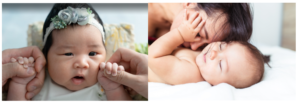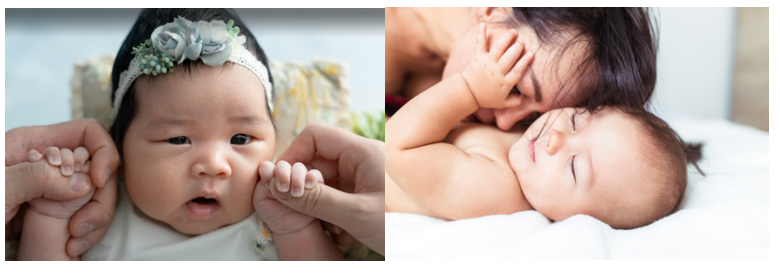One of the biggest myths parents often hear is the following: “do not pick up your newborn and hug them as soon as they start crying. You are spoiling them!”.
This week, I am focusing on this topic not only because I was also given this advice, but the fact that if you ignore a newborn’s cries, it would create a ripple effect for a newborn’s development in the months and years to come. Let us read on and find out why.
Why do babies cry? To put it simply, the only way that a newborn can verbally respond effectively to us is through crying. At an early stage between six to eight weeks, babies cry at an average of 3 hours a day, and most of the time, they cry because they are either hungry, unsettled, in need of diaper change, uncomfortable (too hot, or cold) or is sick and is experiencing fever. Once you understand the reasons, it will help parents or caretakers to eliminate the discomforts mentioned above. Sometimes, if a parent is observant, the frequency of cries, tone, and temperament may be different for each reason. Even if it is somewhat difficult to tell these cries apart, we as parents can learn to identify them so we can react quicker to our baby’s needs.
Once we have identified the reason why your baby is crying, let us understand the science behind why it is important for us to hug our babies when they cry. For parents, the act of hugging the baby is to offer solace so they feel more at ease. The science behind offering our comfort to babies goes a lot deeper than we often realize. According to multiple studies, when babies cry, their respiratory rate (heart and lung functions) increases in order to cope with the action that is occurring (crying). As soon as a parent, caregiver or, even a stranger offers comfort by hugging and stroking the baby, their respiratory rate reduces. Therefore, we as parents, need to pay attention and try to console the baby as best and as soon as we can.
According to J Kevin Nugent, Director of Brazelton Institute at Children’s Hospital in Boston and a psychologist, indicates that “a challenge of the newborn is getting to know that the world is somehow reliable and trustworthy, that his or her basic need will be met.” He goes on to comment that responding to a baby’s cues “isn’t a matter of spoiling, but it’s a matter of meeting the child’s needs”. Baby’s psychological response to hugging is not too complex, and Dr. Barbara Howard (Assistant Professor of Pediatrics at Johns Hopkins University in Baltimore) says that “a spoiled child is one that’s manipulative, but babies don’t learn until they are about 9 months that they can cry to get you to do something for them”.
What happens if the baby is often neglected when they cry? According to multiple studies, our babies will be directly affected by some of the following. Some of these may depend on how long they are neglected and also the sociological, psychological background they experience during their neglect.
- Increased risk of diabetes.
- Poorer lung functioning.
- Vision and oral health problems.
- Malnutrition.
- Brain damage.
- High blood pressure.
When we become parents, we are responsible to give the best care for our babies. If we do not have the time, we make the time; if we are too tired, we find the energy to do so; if we are annoyed by our baby’s cries, we find a place deep in our hearts to comfort them; if we do not understand how they think, we do our due diligence and try to learn about them. Let us try to give them more than what we may have been given when we were once babies. It is not just our responsibility; it is our moral obligation to do so.
A quote from Ms. Ann Rinaldi (Aug 1934 – Jul 2021, American young adult fiction author): “I know now why God gave us babies. They require constant attention of course. They make mess and disturb the peace, but their cuteness and smiles are something the only reminder of God we have in the house”.
Text:
www.webmd.com/parenting/baby/features/infants-attention
www.ncbi.nlm.nih.gov/pmc/articles/PMC6724449/
www.childwelfare.gov/pubpdfs/long_term_consequences.pdf
Pic:
www.momtastic.com/health-wellness/689379-benefits-of-hugging-your-baby/


